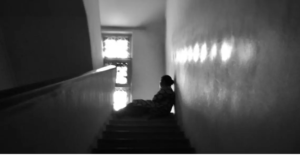Editorial Staff, The New Leam
As the coronavirus pandemic begins to drastically alter all spheres of our lives from the market to the classroom, Kerala has come up with an innovative and inspirational plan in the domain of education. With schools closed down for more than two months now and regular classroom activities totally suspended, schools across the country have been looking at digital education with a lot of expectations and it is often being considered as the most viable option for the future.
But one of the biggest concerns around online teaching and digital education is about its ability to become democratic and reach out to students from the most vulnerable sections of the population. But in Kerala, a new and innovative pedagogic experiment in the field of digital education may become the game-changer.
It was in the very beginning of June that the state experienced a very tragic incident when a 14-year old girl committed suicide in Malappuram because she didn’t have the resources to be able to attend the virtual classes that were being organised by the state government.
Given the pandemic and the resultant prolonged closure of schools, the Kerala government’s Education Ministry had started online classes for students of public schools and the pilot project began in early June.
The father of the student who committed suicide in Kerala was a daily wage earner from the Scheduled Caste and was extremely poor.
He was repeatedly asked by his daughter to get the television at home repaired so that she could attend her online classes, as there was no smartphone at home. But the father could not afford to get the TV repaired due to financial constraints. The girl took her own life because she couldn’t take her school lessons and felt left out.
The chief minister of the state recently held a press conference wherein he reiterated that the initial set of lessons that were being telecasted at the moment were trial classes. Kerala has worked day and night for making sure that online classes are democratised through a government run TV channel to make sure that critical school lessons aren’t just on the internet and any child with a TV at home can easily access them amid the pandemic.
The virtual school education program in Kerala has been named “First Bell” and has been designed as an academic program for the year 2020-21. It has been jointly executed by the Kerala Infrastructure and Technology for Education (KITE) and the State Council of Educational Research and Training (SCERT) along with Samagra Siksha Kerala (SSK) and the State Institute of Educational Technology (SIET) – agencies owned by the state Education Ministry.
The classes are telecasted on KITE run VICTERS channel according to the daily timetable that has been notified across the length and breadth of the state. The classes are also uploaded on YouTube and on its own website. The sessions are conducted on weekdays for classes 1-12. The videos are available in a downloadable format and can be downloaded and viewed later too. The classes are also available at Akshaya Centres, which are state government run resources that carry out a wide range of activities and work between the State and the public at many locations across the state.
Before making these lessons available for children through television and other platforms, the SSK made sure to conduct a survey to calculate the number of government/aided school students who didn’t have access to an internet connection or a TV and they found that there were about 2,61,754 lakh families which had access to either one of the electronic devices. This was nearly 6% of the total population. According to the Broadcast India Survey, Kerala has 93% TV penetration.
The Kerala government along with the other agencies involved began a rigorous training of teachers to carry out this experiment and passed nearly 82,000 teachers to take over the project and conduct these classes or prepare and disseminate materials for children.
Kerala’s Education Minister, C Raveendranath says that virtual classes are the way for the future and since students and teachers can’t travel to schools, developing this model was the best way to fill up the educational void.
He also invited people from across the state to give their feedback regarding quality, shortcomings, dissemination, etc so that through people’s feedback it could be made much better in the coming times.
Moreover, distribution of television sets by the government and civil society bodies, setting up of common resource rooms, libraries and study rooms where children can come to attend the televised classes if their home ambience doesn’t permit them to do so, are all meaningful efforts in the right direction. The efforts that the government and the civil society bodies are making in Kerala for making digital classes democratically available to children from diverse socio-economic backgrounds is indeed praiseworthy.
It wouldn’t be wrong to say that one of the important qualities that make the Kerala educational model so successful is the fact that local people and citizens groups extend their cooperation towards it and support it with all that they own.
There is a commonly held belief in Kerala that children from no economic background shall be left behind in academics and each person must work towards ensuring that access to education is democratised. The responsibility towards education is shared by all people. Thus the public with the help of the panchayat officials have worked hard to facilitate the distribution of free TVs to households that don’t own one, set up common study rooms and encourage the community to participate enthusiastically in this project.
It is interesting and fascinating to note that Kerala is experimenting with this innovative and exemplary model of disseminating online/distance education and making it more democratic at a time when the rest of the country is speaking vehemently against the exclusive nature of online education and assessments.
The debate around “digital divide” has become very important over the last couple of month as a shift to online modes of learning have left lakhs of Indian children deprived. At a time when the majority of people don’t have access to internet connectivity, what makes Kerala model different is the fact that while there is a shift to the virtual, many efforts are being made to simultaneously make this shift as accessible as possible for children from all economic backgrounds through a decentralised process.
The Kerala government has given class teachers and headteachers the responsibility of informing the authorities about the number of children who don’t have access to electronic devices. The government has also dropped its plans of conducting examinations for children at this point in time. It was in 2019 that Kerala had declared internet as a basic human right and amid the pandemic its efforts for democratising online education are noteworthy. The state has indeed thought of students from the most underprivileged backgrounds and prioritised their access to education even amidst the pandemic.




